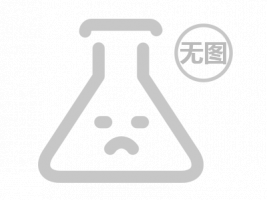Proteasome20Sα1,2,3,5,6,&7subunits,mAb(MCP231)原装订购
订购电话:021-51870956
在线QQ:470003480
快来www.haoranbio.com体验在线订购给您带来的快捷和方便吧!
BML-PW8195-0100 100 µl
BML-PW8195-0025 25 µl
The proteasome is widely recognised as the central enzyme of non-lysosomal protein degradation. It is responsible for intracellular protein turnover and it is also critically involved in many regulatory processes and, in higher eukaryotes, in antigen processing. The 26S proteasome is the key enzyme of the ubiquitin/ATP-dependent pathway of protein degradation. The catalytic core of this unusually large (2000kDa, 450Å in length) complex is formed by the 20S proteasome, a barrel shaped structure shown by electron microscopy to comprise of four rings each containing seven subunits.
Based on sequence similarity, all fourteen 20S proteasomal subunit sequences may be classified into two groups, α and β, each group having distinct structural and functional roles. The α-subunits comprise the outer rings and the -subunits the inner rings of the 20S proteasome. Observations of the eukaryotic proteasome and analysis of subunit sequences indicate that each ring contains seven different subunits (α7β7β7α7) with a member of each sub-family represented in each particle. Each subunit is located in a unique position within the α- or β-rings. 120S Proteasomes degrade only unfolded proteins in an energy-independent manner, whereas 26S proteasomes degrade native and ubiquitinylated proteins in an ATP-dependent manner. The native protein substrates are recognised by subunits, some with ATP binding sites, of the outer 19S caps of the 26S proteasome.
The hybridoma secreting the antibody to subunits HC2, HC3, HC8, HC9, Iota and Zeta was generated by fusion of spenocytes from Balb/c mice which had recieved repeated immunisation with dinitrophenylated proteasomes.
Product Specification
Purity Detail: Partially purified ascites.
Formulation: Liquid. In PBS containing 10mM sodium azide.
Clone: MCP231
Isotype: IgG1
Immunogen: Dinitrophenylated proteasomes.
Source/Host: From mouse
Specificity: Recognizes human, rabbit, rat, mouse, yeast and potato proteasome 20S (α1,2,3,5,6 & 7 subunits).
Application: Immunohistochemistry
Western Blot
Shipping: SHIPPED ON BLUE ICE
Long Term Storage: -20°C
Use/Stability: Dilute in PBS pH 7.2-7.4 and 1% normal goat serum (if a goat anti-mouse IgG linker antibody is tu be used)
Handling: Avoid freeze/thaw cycles.
Store unopened vial at -20°C until required for use. Aliquot after opening and store at 2-4°C. The use of high quaity 'antiserum-grade' plastic or glass vials is recommended. Use within 1 month
在线QQ:470003480
快来www.haoranbio.com体验在线订购给您带来的快捷和方便吧!
BML-PW8195-0100 100 µl
BML-PW8195-0025 25 µl
The proteasome is widely recognised as the central enzyme of non-lysosomal protein degradation. It is responsible for intracellular protein turnover and it is also critically involved in many regulatory processes and, in higher eukaryotes, in antigen processing. The 26S proteasome is the key enzyme of the ubiquitin/ATP-dependent pathway of protein degradation. The catalytic core of this unusually large (2000kDa, 450Å in length) complex is formed by the 20S proteasome, a barrel shaped structure shown by electron microscopy to comprise of four rings each containing seven subunits.
Based on sequence similarity, all fourteen 20S proteasomal subunit sequences may be classified into two groups, α and β, each group having distinct structural and functional roles. The α-subunits comprise the outer rings and the -subunits the inner rings of the 20S proteasome. Observations of the eukaryotic proteasome and analysis of subunit sequences indicate that each ring contains seven different subunits (α7β7β7α7) with a member of each sub-family represented in each particle. Each subunit is located in a unique position within the α- or β-rings. 120S Proteasomes degrade only unfolded proteins in an energy-independent manner, whereas 26S proteasomes degrade native and ubiquitinylated proteins in an ATP-dependent manner. The native protein substrates are recognised by subunits, some with ATP binding sites, of the outer 19S caps of the 26S proteasome.
The hybridoma secreting the antibody to subunits HC2, HC3, HC8, HC9, Iota and Zeta was generated by fusion of spenocytes from Balb/c mice which had recieved repeated immunisation with dinitrophenylated proteasomes.
Product Specification
Purity Detail: Partially purified ascites.
Formulation: Liquid. In PBS containing 10mM sodium azide.
Clone: MCP231
Isotype: IgG1
Immunogen: Dinitrophenylated proteasomes.
Source/Host: From mouse
Specificity: Recognizes human, rabbit, rat, mouse, yeast and potato proteasome 20S (α1,2,3,5,6 & 7 subunits).
Application: Immunohistochemistry
Western Blot
Shipping: SHIPPED ON BLUE ICE
Long Term Storage: -20°C
Use/Stability: Dilute in PBS pH 7.2-7.4 and 1% normal goat serum (if a goat anti-mouse IgG linker antibody is tu be used)
Handling: Avoid freeze/thaw cycles.
Store unopened vial at -20°C until required for use. Aliquot after opening and store at 2-4°C. The use of high quaity 'antiserum-grade' plastic or glass vials is recommended. Use within 1 month
